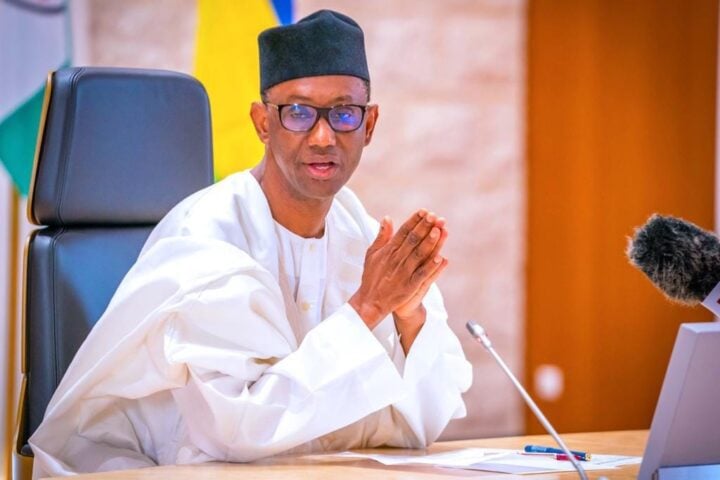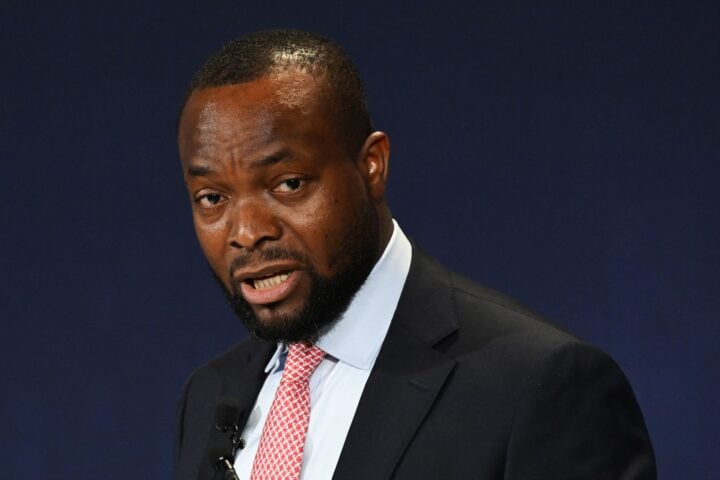Nuhu Ribadu
BY SYLVESTER OSEGHALE
A few days ago, Tigran Gambaryan, an embattled executive of Binance, the American cryptocurrency exchange firm, took to X (formerly Twitter) to share his account of his incarceration in Nigeria. His narrative was wild, filled with allegations of bribery solicitation, and it sparked heated conversations across social media. Among the names he dragged into the fray was Nigeria’s National Security Adviser, Malam Nuhu Ribadu—a move that has since been met with widespread scepticism and scrutiny.
While Gambaryan might have gotten away with claiming that three members of the house of representatives asked him for bribes, his attempt to implicate Ribadu was where he lost the script. This misstep revealed a glaring lack of research and a naïve assumption that such allegations would be swallowed whole without question or demand for evidence. The inclusion of Ribadu in his tale of corruption not only strained credibility but also exposed Gambaryan’s ignorance of the man’s reputation and the office he holds.
It is nothing short of ridiculous to suggest that Ribadu, a man who has built a career on integrity and incorruptibility, would demand “billions in payouts to fund his future political ambition”. This claim alone betrays Gambaryan’s lack of understanding of Ribadu’s antecedents. Ribadu’s reputation as an incorruptible public servant is not a recent fabrication; it has been tested and proven over decades. One of the most telling examples of his integrity dates back to his younger years when, as chairman of the Economic and Financial Crimes Commission (EFCC), he rejected a $15 million bribe from James Ibori, the former governor of Delta state. If Ribadu could resist such a staggering sum at a time when he was most vulnerable to temptation, it defies logic to believe he would compromise his principles now, at the pinnacle of his career and with nothing left to prove.
Advertisement
The irony of Gambaryan’s allegations is further highlighted by the fact that Ribadu, as a seasoned security expert, understands the weight of his words and actions. Every statement he makes is scrutinised like a crime scene, and every decision is subject to intense public and institutional oversight. To suggest that he would casually shake down a detainee for billions and openly explain the purpose of the funds is not only implausible but also laughable.
Professor Farooq Kperogi, a respected critic and public intellectual, aptly captured the absurdity of Gambaryan’s claims when he wrote: “There’s plenty to critique about Ribadu (who among us is a saint?), but believing that a man who once turned down a literal $15 million cash bribe—and who, as a security expert, knows his words will be dissected like a crime scene—would casually shake down a detainee for billions and helpfully explain what the money is for?” Kperogi’s words underscore the incredulity of Gambaryan’s narrative and the sheer implausibility of his allegations.
The puzzle, as Kperogi further notes, is the first thing that comes to mind for every discerning observer. It takes “Olympic-level gullibility” to swallow Gambaryan’s story. What we are witnessing is not a genuine exposé of corruption but a desperate stunt by a man caught exploiting Nigeria’s electronic finance infrastructure and intelligence. Gambaryan’s allegations are a diversionary tactic designed to tilt public opinion away from the actual facts of the case: that Binance was accused of money laundering and facilitating criminal activities in Nigeria. The charges against Binance were not dropped because the company was found innocent; they were dropped because the U.S. government intervened to secure its release.
Advertisement
Gambaryan’s attempt to portray himself and his colleagues as victims of an oppressive system is disingenuous at best. The truth is that Binance colluded with individuals who had sinister agendas to undermine Nigeria’s sovereign integrity. The company facilitated the laundering of money to the detriment of the very Nigerians Gambaryan now seeks to mislead on social media. If Binance were truly innocent, why did Gambaryan’s colleague, Nadeem Anjarwalla, escape from detention to evade justice in an open court? This act alone speaks volumes about the company’s culpability and the lengths to which its executives are willing to go to avoid accountability.
In the end, Gambaryan’s allegations against Ribadu are not just unfounded; they are a calculated attempt to exploit Nigeria’s image crisis for personal gain. By fabricating tales of corruption, Gambaryan hoped to divert attention from Binance’s own transgressions and cast himself as a victim. Fortunately, he does not have the evidence to support such claims. In law, as in reality, the burden of proof rests on the accuser.
Sylvester Oseghale is a lecturer and public affairs analyst based in Abuja. He can be contacted via [email protected].
Advertisement
Views expressed by contributors are strictly personal and not of TheCable.









